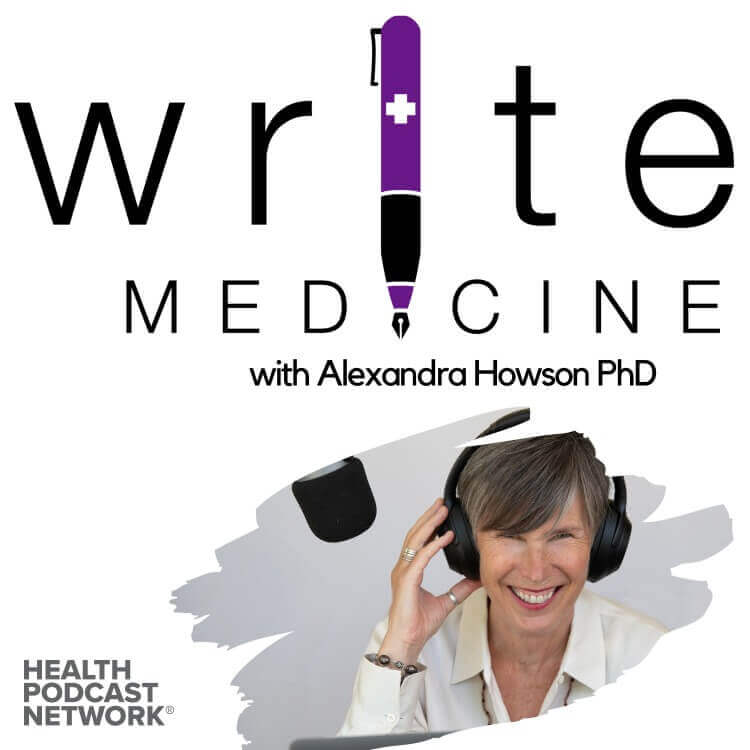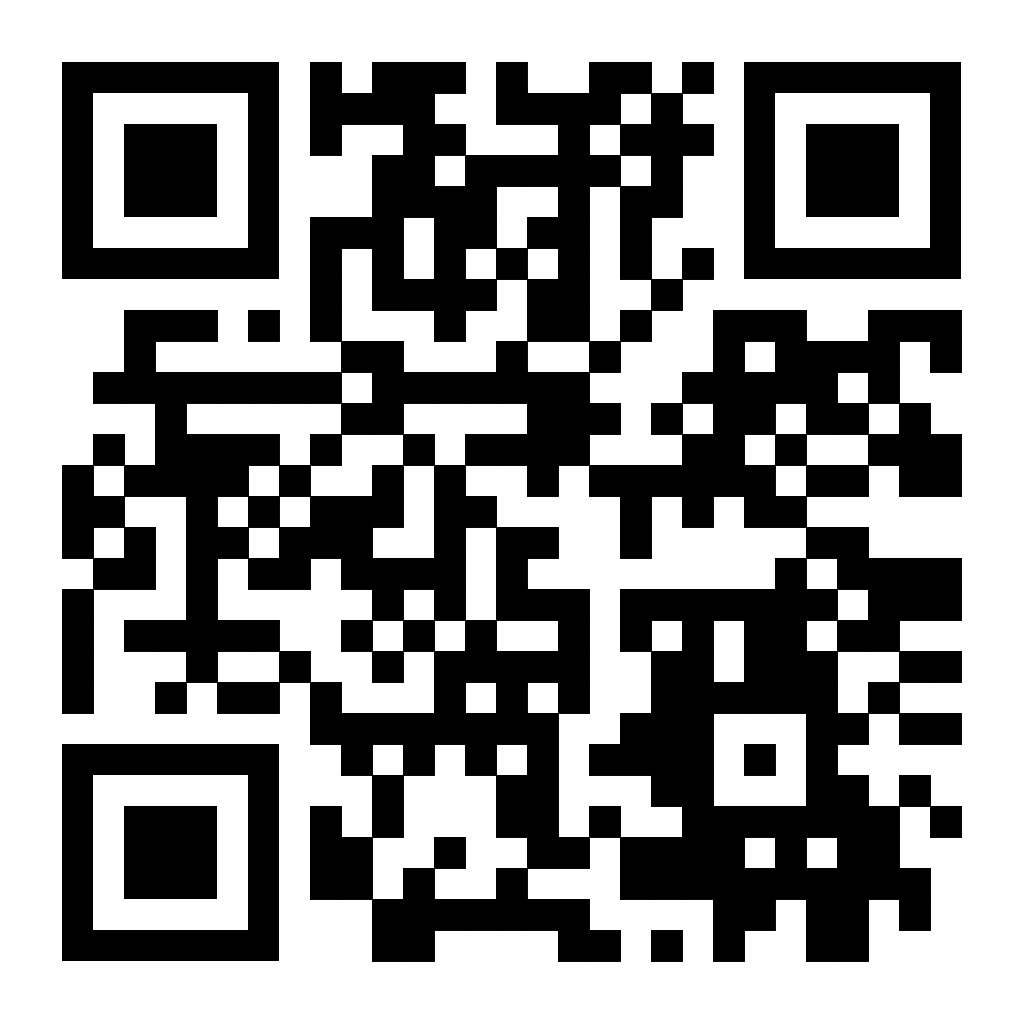
Write Medicine
Exploring best practices in creating continuing education content for health professionals.
When Clients Collide: Maintaining Integrity in Freelance CME Writing
Have you ever faced the ethical dilemma of being asked to work on similar projects for competing clients?
As a freelance CME writer, you may encounter situations where multiple clients request your expertise for overlapping projects. This can put you in a challenging position, balancing professional ethics with business opportunities.
By listening to this episode, you will:
Learn how to navigate potential conflicts of interest in CME writing
Understand the ethical frameworks and principles that guide decision-making in medical education
Gain practical strategies for maintaining professional integrity while managing client relationships
Tune in now to equip yourself with the knowledge and tools to make ethical decisions that protect your reputation and uphold the integrity of CME content creation.
Resources
WriteCMEpreneur Waitlist
Write Medicine Insider
Manifesting Wealth in Transitions Retreat
ACCME 2020 Standards for Integrity and Independence in Continuing Education
Timestamps
00:00 Introduction
02:39 WriteCME Pro question on the ethical dilemma where two clients ask you to work on the same project
03:23 Exploring ethical frameworks
06:54 Variables affecting content integrity
09:55 The issue of conflict of interest
11:22 Transparency is another ethical consideration
12:13 Answering the WriteCME Pro question
13:23 Key takeaways from today's episode
Subscribe to the Write Medicine podcast!
Subscribe to the Write Medicine podcast for more valuable insights on continuing medical education content for health professionals. Click the Follow button and subscribe on your favorite platform.
July 3, 2024
From Burnout to Brilliance: Dr. Lisa Herbert’s Framework for Leadership Development
Are you a physician feeling overwhelmed by the complexities of modern healthcare? Do you struggle to have your voice heard in an increasingly corporate medical landscape? Or perhaps you're a medical professional looking to step into a leadership role, but unsure how to begin?
As CME professionals, we work with physicians on a daily basis. But how tuned into their struggles and concerts are you? And how can education support physicians and other health professionals who are ready to grow into a leadership role?
As a healthcare or CME professional, you may struggle to maintain autonomy, influence decisions, and navigate the increasingly corporate medical environment. Today's episode with Dr. Lisa Herbert MD, FAAFP, CPEC addresses these challenges head-on, offering insights and strategies to help you reclaim your voice and emerge as an effective leader in your field.
Discover a proven framework for developing essential leadership skills tailored for physicians
Burnout can stem from increasing administrative burdens, corporate influence, and lack of autonomy, but coaching can provide tools to reclaim focus and purpose.
Learn the 5 Ps of leadership
Connect with Dr. Lisa
Just the Right Balance
LinkedIn
Resources
Dr. Lisa's books
Timestamps
00:00 Introduction
01:24 Introducing Lisa
05:20 Physicians losing their voice
07:28 The imperative for physicians to develop negotiation, communication, and conflict resolution skills
09:33 Challenges physicians are facing
13:07 Barriers to clinician autonomy from prioritizing clinical issues
15:39 The disincentives for physicians in training
16:42 A walkthrough of what Lisa teaches and offers to help physicians establish themselves as leaders
22:26 What steps to take to work with her
23:57 Lisa’s final thoughts on mindset
26:01 Key takeaways from today’s conversation with Lisa
Subscribe to the Write Medicine podcast!
Don’t forget to subscribe to the Write Medicine podcast for more valuable insights on continuing medical education content for health professionals. Click the Follow button and subscribe on your favorite platform.
June 26, 2024
Streamline Your Social Media: Essential Tips for Freelance Writers
Are you struggling to maintain a balanced online presence without feeling overwhelmed by social media?
As a freelance medical writer, you likely know the importance of social media as a marketing tool. However, its demands can be incredibly draining, impacting both your productivity and emotional wellbeing. This episode dives into practical strategies tailored to help you navigate these challenges effectively.
1. Learn why LinkedIn is the preferred platform for professional conversations among medical writers.
2. Discover step-by-step methods to create and manage your content efficiently without the usual stress.
3. Gain tips on time management and maintaining emotional wellbeing while engaging online.
**Action (A):**
Tune in now to the latest episode of Monday Mentor and take control of your social media presence today!
Timestamps
00:00 Introduction
01:31 Why I choose to solely focus on LinkedIn
02:50 How to manage your social media presence
04:23 Time management strategies for social media
05:01 Being selective about what you respond to
Subscribe to the Write Medicine podcast!
Subscribe to the Write Medicine podcast for more valuable insights on continuing medical education content for health professionals. Click the Follow button and subscribe on your favorite platform.
June 24, 2024
Competencies, Gaps, and Grants: Your Roadmap to Compelling CME Needs Assessments
Are you struggling to create compelling needs assessments that win over supporters in today's evolving medical education landscape?
As a medical education grant writer or provider, you know that crafting targeted, data-driven needs assessments is crucial for securing funding and delivering impactful education. However, piecing together the right data and telling a persuasive story can be challenging, especially with the increasing expectations from supporters.
1. Gain expert insights from Nathalie Turner MS, ELS, a nearly 30-year veteran in medical education, on what makes a needs assessment compelling to supporters.
2. Learn the must-haves versus nice-to-haves in needs assessments and tips for balancing different stakeholder interests.
3. Discover where needs assessments are heading in the coming years and how to stay ahead of the curve.
Tune in now to hear Natalie share her wealth of knowledge and experience, empowering you to create winning needs assessments that secure funding and drive meaningful change in healthcare.
Connect with Nathalie
Director, Grant Development, Medscape Education
LinkedIn
Timestamps
00:00 Introduction
01:40 Introducing Nathalie and grant development
04:03 How needs assessments have changed in the last 3 decades
06:00 Working with the old model of a literature review
10:00 Steps to gathering supporter preferences for grant proposals
11:42 Must-haves versus nice-to-haves in proposals and needs assessments
13:48 What gaps are
15:20 Types of training and development the community needs to get even better at that investigative process
17:46 Balancing interests of different grant proposal readers
19:23 Challenges in compiling compelling needs assessment and grant proposals
20:20 Future trends in needs assessments and grant proposals
21:17 Nathalie's perspective on AI's role in writing needs assessments
23:28 Her thoughts on what's important to the needs assessment process
24:41 3 Key considerations for approaching needs assessments
27:07 Key takeaways from today's episode you can put into action right away
Subscribe to the Write Medicine podcast!
Don’t forget to subscribe to the Write Medicine podcast for more valuable insights on continuing medical education content for health professionals. Click the Follow button and subscribe on your favorite platform.
June 19, 2024
Master the Mindset Shift: How to Thrive as a CME Writer
Overcome medical writing self-doubt through mindset shifts and peer connections.
Are you struggling to gain confidence and overcome self-doubt in your medical writing career?
Today in Monday Mentor, we tackle the common challenges CME writers face in today's rapidly changing landscape. From navigating client expectations to proving your value as a strategic partner, we share practical tips to help you thrive as a medical writer.
Discover how to:
1. Shift your mindset from self-doubt to expert
2. Communicate effectively with clients to clarify project scope and expectations
3. Advocate for your value in driving content strategy
Tune in now to learn powerful strategies for conquering self-doubt and mastering your role as a CME writer.
Timestamps
00:00 Introduction
01:25 Addressing context
02:32 Develop and reinforce your professional identity
05:05 External factors driving self-doubt
08:01 Overcoming self-doubt
10:49 Navigating CME writing
Subscribe to the Write Medicine podcast!
Subscribe to the Write Medicine podcast for more valuable insights on continuing medical education content for health professionals. Click the Follow button and subscribe on your favorite platform.
June 17, 2024
Trauma Surgery Training: Simulations, Continuing Education, and Preventing Burnout with Stephen Cohn
What really happens behind the scenes when a severely injured trauma patient arrives at the hospital?
Emergency care providers need to act quickly and coordinate seamlessly with their team when seconds count to save a trauma patient's life. But the high-stakes, chaotic environment can make it challenging to stay calm, avoid errors, and prevent burnout, especially if you don't get to practice those skills regularly.
Stephen Cohn MD says trauma surgeons need to be experts at dealing with calamity. They are glue people, helping to hold together the entire hospital enterprise. In today's episode you'll get:
An inside look at real-world trauma resuscitation from a surgeon's perspective
Practical tips to optimize trauma teamwork, communication, and composure under pressure
Advice for both individuals and organizations on building sustainable trauma surgery careers
Listen now to hear Dr. Cohn's wisdom gleaned from 40+ years of managing the worst injuries imaginable.
Resources
Stephen M. Cohn MD. All Bleeding Stops: Life and Death in the Trauma Unit. Mayo Clinic Press. 2023.
Timestamps
00:00 Introduction
01:40 Walk-through of the arrival of a trauma patient at the trauma center
10:14 Feelings in the trauma center and coordinated teamwork
14:12 Continuing medical education and team training
17:32 The work that trauma & general surgeons do and a wide array of potential surgical intervention
19:16 Innovations that have redefined and impacted trauma care
21:39 Common errors and misconceptions
23:27 Advice for younger surgeons on preventing burnout and preserving energy
25:37 Institutional support and resources
27:27 Key takeaways
Subscribe to the Write Medicine podcast!
Don’t forget to subscribe to the Write Medicine podcast for more valuable insights on continuing medical education content for health professionals. Click the Follow button and subscribe on your favorite platform.
June 7, 2024
Elevate your CME Game: Insider Secrets from Kristen Dascoli to Transform Education Programs
Kristin Dascoli, a seasoned pro with experience on both the editorial and business development sides of CME, pulls back the curtain on the development of a pioneering program on gender-affirming HIV care.
ELEVATE was a groundbreaking CME initiative that aimed to enhance healthcare providers' cultural competencies in delivering gender-affirming care to transgender and gender-diverse patients. From its pilot in January 2015 to its conclusion in the summer of 2019, ELEVATE conducted 26 trainings across 14 states, partnering with 9 chapters of the American Academy of Family Physicians, a county healthcare agency, and 13 health systems. The initiative reached nearly 1,500 healthcare professionals in primary care, infectious disease, and HIV practice settings through live events, an online webinar, interviews, and a published white paper, ultimately inspiring the creation of a Transgender Advisory Committee at one of the participating health systems.
1. Discover how a little targeted research into supporters' educational focus can help you create needs assessments that resonate with funders, while maintaining the highest standards of independence and objectivity.
2. Get a behind-the-scenes look at the development of ELEVATE and learn how you can apply similar strategies to bring your own visionary ideas to life.
3. Master the art of designing education that starts smart, scales strategically, and captures meaningful, measurable outcomes that demonstrate real-world impact.
Resources
McCrea AD, Dascoli KL. Inclusion in Education, Part 1: Designing a Gender-affirming Educational Initiative. Alliance Almanac. October 2017.
McCrea AD, Dascoli KL. Inclusion in Education, Part 2: A New Method for Measuring Changes in Skill, Attitude, and Behavior. Alliance Almanac. April 2018.
Connect with Kristen
Freelance Medical Writer/Editor/Business Consultant
Timestamps
00:00 Introduction
02:40 Kristen's Background in CME
03:54 The changes in the process of writing needs assessments
05:52 Walking through the process of the development and impact of a program like Elevate
12:13 Lessons from the pilot program of Elevate
15:42 How Elevate changed Kristen and the organization she worked in
19:56 How to establish and build relationships
23:40 Starting conversations for collaboration
27:22 Surprising outcomes and feedback
30:42 Advice for education providers who want to develop innovative programs
34:23 How to start to be brave and make connections
37:52 Challenges writers have when writing a needs assessment for a grant proposal
44:18 Recap of today's episodes key takeaways
Subscribe to the Write Medicine podcast!
Don’t forget to subscribe to the Write Medicine podcast for more valuable insights on continuing medical education content for health professionals. Click the Follow button and subscribe on your favorite platform.
June 5, 2024
Building Confidence as a New CME Writer: Strategies for Success
Are you a clinician, researcher or academic transitioning into CME writing? Do you sometimes feel like you're starting over from scratch, despite your wealth of expertise? Are you struggling with self-doubt, isolation, or imposter syndrome as you navigate this new path?
If so, you're in the right place. In this episode, we'll dive into the common anxieties faced by new CME writers and share practical strategies to help you reframe your thinking, build confidence, and thrive in your new role.
You'll learn how to leverage your existing knowledge, find support to combat isolation, and approach uncomfortable feelings with curiosity and compassion. By the end, you'll have a toolkit of insights and practices to help you move past self-doubt and build a successful career in CME writing.
So if you're ready to honor your expertise, connect with a supportive community, and grow into your new identity as a CME writer - keep listening. Let's get started!
Takeaways
Here are 3 key takeaways and action steps from the episode:
1. Remember your expertise
Your current knowledge and professional experience are highly relevant and valuable in CME writing.
Identify aspects of your expertise that could become potential revenue streams for your freelance CME writing business.
Action step: Make a list of your specific areas of expertise and brainstorm how you can leverage them in your CME writing.
2. Find support to combat isolation
Connecting with a community of fellow writers is crucial for combating self-doubt and isolation.
Surrounding yourself with others on a similar path provides opportunities to ask questions, learn, and see your experiences reflected.
Action step: Join a supportive community, like the WriteCME Pro membership, to access the resources and support you need to build confidence and hone your skills.
3. Use practical strategies to boost confidence
When facing self-doubt, use the "Pause, Breathe, Notice, Reassess, Respond" practice to approach uncomfortable feelings with curiosity.
Remind yourself of past successes, reach out to supportive colleagues, or break overwhelming projects into manageable steps.
The next time you experience self-doubt, implement the 5-step practice and intentionally respond to your feelings in a way that promotes growth and confidence.
By leveraging your expertise, finding support, and using practical strategies to navigate self-doubt, you can transform anxiety into opportunities for growth and thrive in your CME writing journey.
Resources
➡️ Grab your WriteCME Roadmap! Get access to this complimentary ebook, designed to help you break into CME, find clients, and hone your craft.
➡️ Ready for skills, scaffolding, and support? Join WriteCME Pro
➡️ Claire Bonneau/Email Marketing
Website
LinkedIn
Timestamps
00:00 Introduction
02:46 Ways to reframe your thinking
05:25 Overcoming isolation as a freelancer
07:37 A practice for facing self-doubt
Subscribe to the Write Medicine podcast!
Subscribe to the Write Medicine podcast for more valuable insights on continuing medical education content for health professionals. Click the Follow button and subscribe on your favorite platform.
June 3, 2024
Write Medicine
Write Medicine is a weekly podcast that explores best practices in creating continuing education and professional development (CME/CPD) content for health professionals. Host Alexandra Howson PhD, CHCP uses her expertise in education and health care to guide rich, honest discussions about the practice of creating CME/CPD content with intention and confidence.
Write Medicine is here to offer you guidance and strategies as you navigate all phases of CME/CPD. Join our thoughtful, provocative, and valuable conversations about adult learning, teaching platforms, content creation techniques, effective formats, and trends in healthcare that influence the type of content we create. Wherever you are in the content creation process, if your work involves planning, designing, delivering, or evaluating education for health professionals, this podcast is for you.
Write Medicine is here to offer you guidance and strategies as you navigate all phases of CME/CPD. Join our thoughtful, provocative, and valuable conversations about adult learning, teaching platforms, content creation techniques, effective formats, and trends in healthcare that influence the type of content we create. Wherever you are in the content creation process, if your work involves planning, designing, delivering, or evaluating education for health professionals, this podcast is for you.
Host

Alexandra Howson
Alexandra Howson, PhD, is a writer and researcher who creates and evaluates education content for health professionals. A former nurse and academic, Alex shares her deep expertise in health care and education with new-to-the-field or CME-curious medical writers, teaching how to create educational content with confidence and build a sustainable CME writing niche via community, courses, and coaching.








































